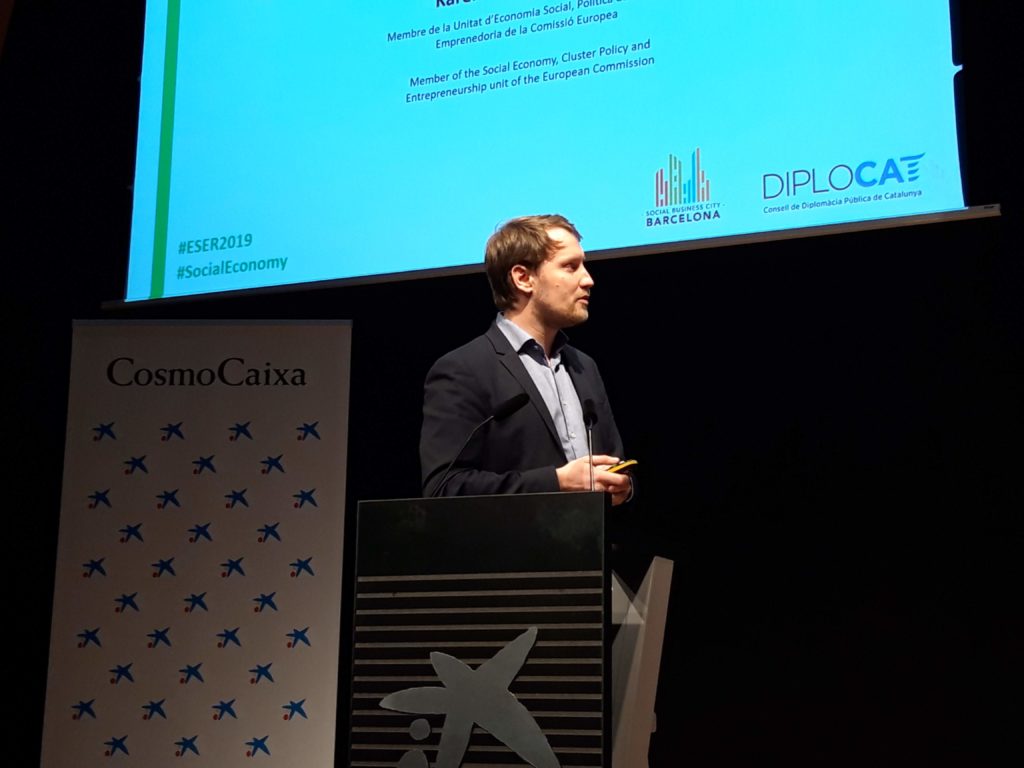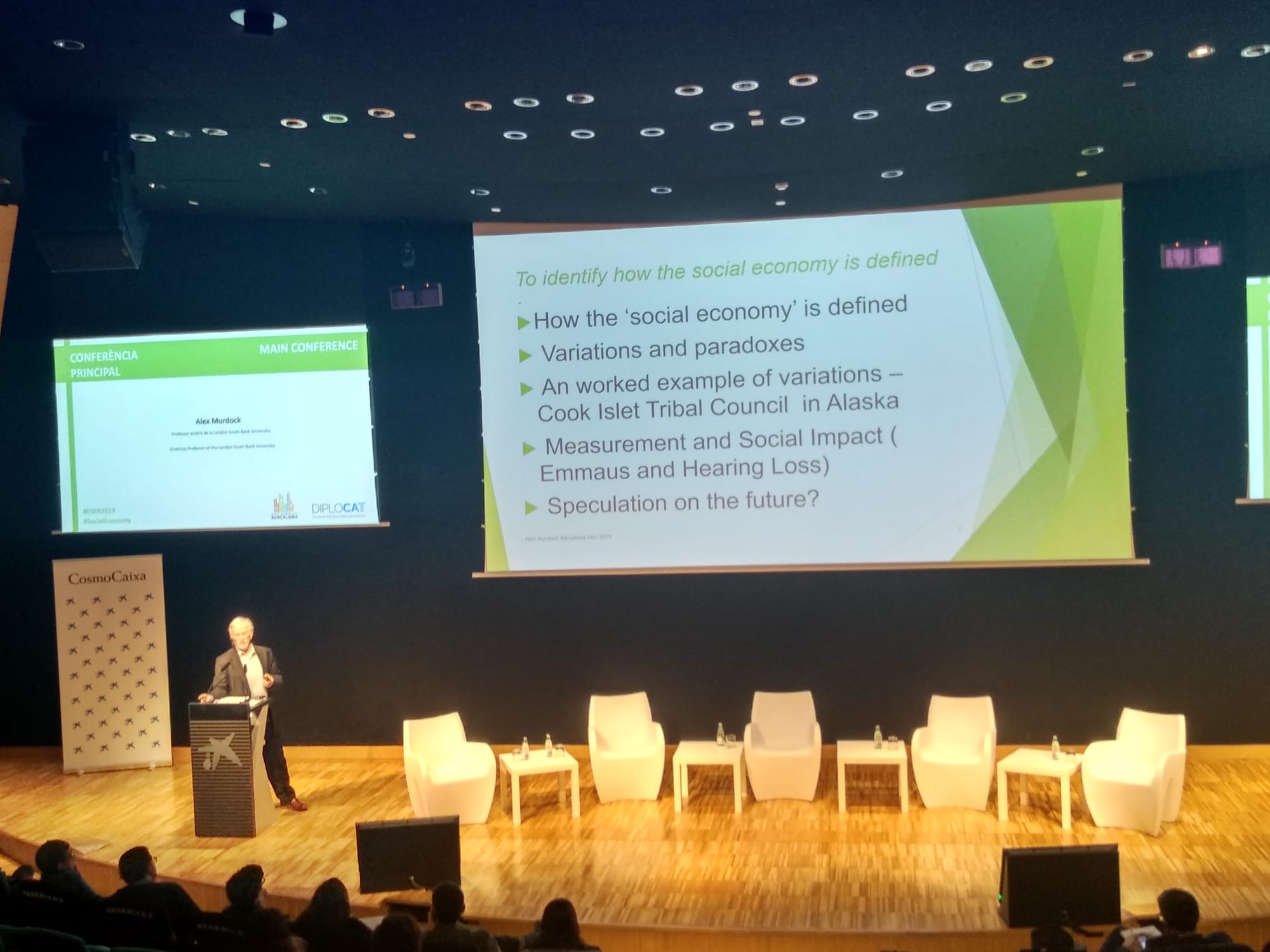Last Thursday, November 28th , we organized, together with Diplocat, the event “Good Practices in Social Economy” which is part of the second edition of ESER 2019, European Social Economy Regions, an initiative of the European Commission with the aim of establishing an effective network of social economy partners and entities.
The conference was led by Eva Torrents, from Dívik, and the inaugural lectures were given by Karel Vanderpoorten, representative of the European Commission, and Alex Murdock, professor emeritus at the University of London South Bank.

With Karel Vanderpoorten’s talk we were able to see in detail social economy initiatives that are being carried out around the world, going into examples and concrete results. Some of the companies that were discussed were “Social Club The Hague” in the Netherlands (https://socialclubdenhaag.nl/), “Hotel Corazón” in Nicaragua (https://www.hotelconcorazon.com/) and “Alterural” in Bosnia (https://www.eurogites.org/es/alterural/)
Finally, Karel expressed the definition used by the European Commission for social enterprise, placing special emphasis on the fact that the social enterprise is an agent that operates within the social economy and that its main objective is to createpositive social impact rather than to generate an economic benefit.
In Alex Murdock’s lecture we once again took a perspective on the concept of social enterprise around the world, from the individual entrepreneur seeking to save the world in the United States to a more cooperative model in continental Europe. It was also very interesting to see the gaps that still exist to define the concept with all the paradoxes and contradictions that derive from it.
He concluded his speech by introducing the debate between the different forms of social enterprise: Lucrative or non-profit. Emphasizing that the importance does not lie in whether or not there is a profit, but what is done with it.

The last part of the day consisted of a round table, also led by Eva Torrents, in which Josep Vidal, Director General of Social Economy, the Third Sector, Cooperatives and Self-Employment of the Generalitat de Catalunya; Imma Pérez, Head of Communication and Participation at Abacus; Mario Cuixart, director of the Germina Foundation; and Eugenia Gargallo, founder and director of Up Training Club.
The first question that arose was what was the vision and interpretation of social enterprise that they had from their entity, which Josep Vidal highlighted the importance of participatory and democratic models. And Imma Pérez, representing Abacus, confirmed that cooperativism is the key to its model but also the associative fabric and citizen participation. In this way, it is also considered a social enterprise.
Mario Cuixart, wanted to show his vision from the experience of the Germina Foundation, highlighting that the social enterprise, especially since the economic crisis, has had to go from being strictly linked to donations and subsidies to looking for new market solutions. At the same time, Eugenia Gargallo added that not depending on subsidies gave companies more flexibility to pivot and prototype.
The rest of the debate revolved around the concept, which had already begun to be introduced by Professor Emeritus Alex Murdock, about profit or non-profit. Where Josep Vidal defended non-profit in social enterprise since when profit appears it is inevitable to adopt the vision of great profits. He also ended by commenting that the basis of the Social Economy is cooperativism, and that Europe defines it with the seven cooperative principles.
Imma, defended the for-profit model legally speaking of Abacus, and reminded us that the key was in how the money was made and why. In the same vein, both Mario Cuixart and Eugenia were added. Mario, defending that the question is what is done with the surpluses and that the challenge should always be to grow the organization and emphasize the beneficiaries. Eugenia, in turn, put the impact they make as the main point of social enterprises.
Finally, each speaker defined how they saw the future of the Social Economy in Catalonia in a tweet:
Eugenia: Mass phenomenon. Innovative
Mario: Need to learn and change. Explore mixed models
Imma: Integration. Union. Gear lever
Josep: Good market. Risks and opportunities
The conference was attended by “la Caixa” and the European Commission.
